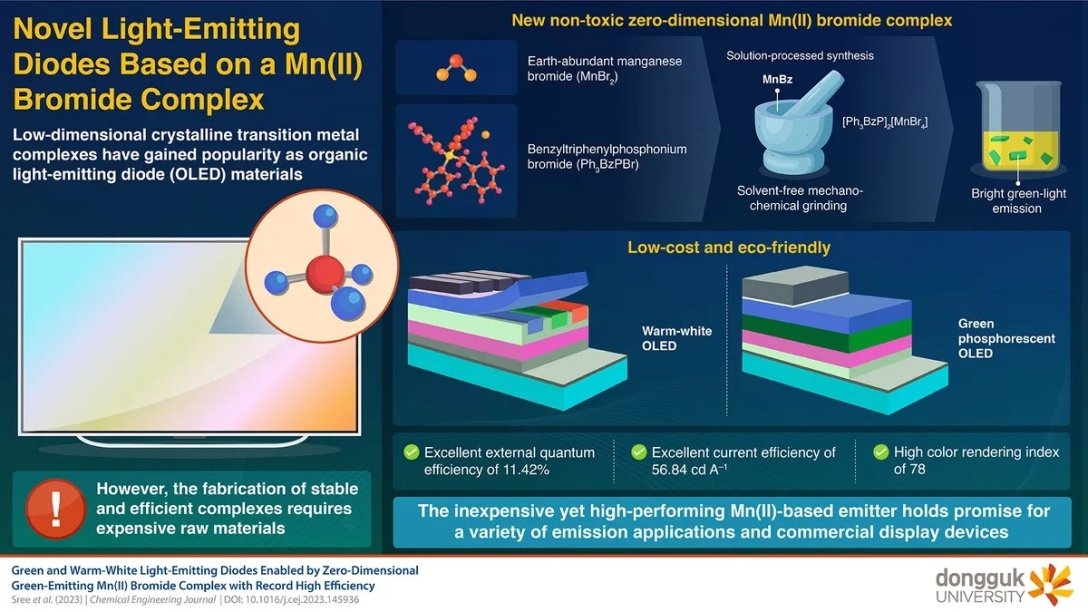
A new breakthrough in OLED: TVs will soon become cheaper and more environmentally friendly
Scientists have managed to create a special solution that will eliminate the need to use expensive rare earth materials in the production of OLED panels.
Scientists have developed a chemical composition that can make OLED panels more environmentally friendly and cheaper to produce by reducing the need for rare earth metals. This became known to the Tom’s Guide portal.
Dongguk University (South Korea) has created a new manganese (Mn) based complex to be used in the manufacture of substrates for OLED screens. Today, most OLED displays are made using expensive rare earth materials to maintain the stability and efficiency of the matrices.
The researchers synthesized MnBz by combining two chemicals – manganese bromide (MnBr2) and triphenylphosphonium benzyl (Ph3BzPBr) – using solvent-free grinding. This solution evaporated over several days, resulting in the formation of single MnBz crystals, which turned out to exhibit high quantum yields combined with bright green emission.
Using MnBz crystals, the scientists developed a device that emits warm white light and an OLED phosphorizing device. Both devices showed a current output efficiency of 56.84 cd A-1 and a record quantum efficiency of 11.42%. In short, they performed much better than the latest generation of OLEDs, while at the same time, the environmental performance during their production was higher than that of OLED panels.

Photo: Dongguk University
In addition, the first-of-its-kind device to emit warm white light on a comprehensive basis had a color rendering index (CRI) of 78, which is quite good compared to conventional OLED screens, which typically have a 90 CRI, but also a problem that is a decline over time.
“LG’s OLED TVs, such as the LG C3 OLED and LG G3 OLED, use rare earth production technology. Samsung also uses them for its QD-OLED TVs, such as the S95C OLED, which increases the cost of its products. The transition to MnBz crystals can not only make the production of a wide range of TV panels and various consumer electronics more environmentally friendly, but also make them more affordable for the average consumer,” the article says.

